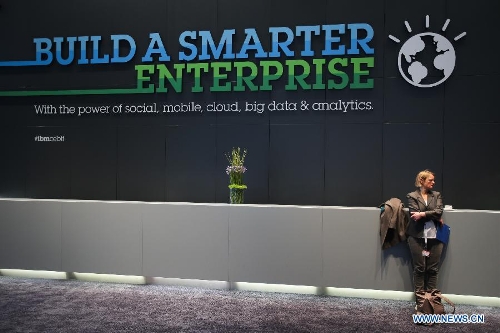International Business Machines Corp disclosed on Monday it will no longer offer facial recognition or analysis software in a letter to Congress calling for new efforts to pursue justice and racial equity, new Chief Executive Officer Arvind Krishna said.


The company will stop offering facial recognition software and opposes any use of such technology for purposes of mass surveillance and racial profiling, Krishna said, who also called for new federal rules to hold police more accountable for misconduct.
IBM did not explain the timing of its decision to exit facial recognition development but Krishna told lawmakers "now is the time to begin a national dialogue on whether and how facial recognition technology should be employed by domestic law enforcement agencies."
The announcement came as the US grapples with nationwide protests over the death of a black man, George Floyd, under police custody in Minneapolis, and rising calls for police reform.
"IBM firmly opposes and will not condone uses of any technology, including facial recognition technology offered by other vendors, for mass surveillance, racial profiling, violations of basic human rights and freedoms," Krishna wrote, adding "technology can increase transparency and help police protect communities but must not promote discrimination or racial injustice."
Government officials across the country have proposed reforms to address police brutality and racial injustice aimed at boosting oversight of law enforcement agencies.
Krishna, the key architect of IBM's $34 billion Red Hat acquisition in 2019, took over the chief executive role in April.
A person familiar with the matter told Reuters the facial recognition product decisions were made over a period of months.
The company will no longer market, sell or update the products but will support clients as needed, the person added.


A visitor rests at the IBM stand of the CeBIT tech fair in Hanover, Germany, March 8, 2014. CeBIT, the world's leading exhibition in the communication and information technology industry, will open to public on Monday in Hanover, Germany. Photo: Xinhua
The company will stop offering facial recognition software and opposes any use of such technology for purposes of mass surveillance and racial profiling, Krishna said, who also called for new federal rules to hold police more accountable for misconduct.
IBM did not explain the timing of its decision to exit facial recognition development but Krishna told lawmakers "now is the time to begin a national dialogue on whether and how facial recognition technology should be employed by domestic law enforcement agencies."
The announcement came as the US grapples with nationwide protests over the death of a black man, George Floyd, under police custody in Minneapolis, and rising calls for police reform.
"IBM firmly opposes and will not condone uses of any technology, including facial recognition technology offered by other vendors, for mass surveillance, racial profiling, violations of basic human rights and freedoms," Krishna wrote, adding "technology can increase transparency and help police protect communities but must not promote discrimination or racial injustice."
Government officials across the country have proposed reforms to address police brutality and racial injustice aimed at boosting oversight of law enforcement agencies.
Krishna, the key architect of IBM's $34 billion Red Hat acquisition in 2019, took over the chief executive role in April.
A person familiar with the matter told Reuters the facial recognition product decisions were made over a period of months.
The company will no longer market, sell or update the products but will support clients as needed, the person added.

